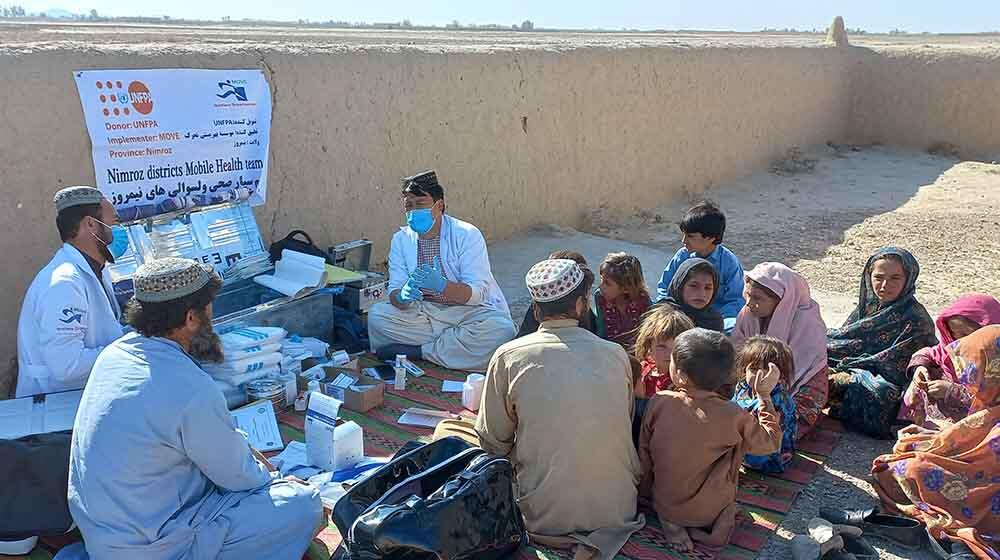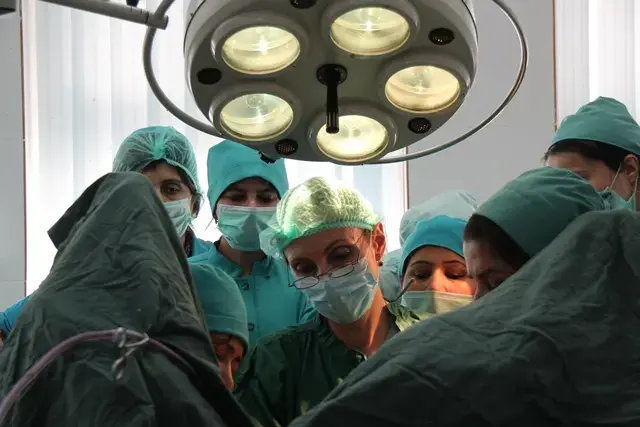Nimroz, Afghanistan – When Iranian police arrested Shukria’s husband for crossing the border with Afghanistan without proper travel documents, she thought she had lost him forever and that he would never see their newborn child, whom she delivered a few days after they were separated.
Thanks to the Mobile Health Team (MHT) deployed by UNFPA’s partner NGO in Nimroz province near the border with Iran, the couple had an unexpected reunion just as the mother delivered the new family member.
Last June, 20-year-old Shukria and her husband decided to leave their home in Kunduz with their 3-year-old son to move to Iran to find work. At that time, Shukria was nearing her last month of pregnancy, and her husband was desperate to find a job to support the growing family.
“That was the only remaining solution he could think of to survive,” Shukria says. The family set out south of Afghanistan to Nimroz to cross over the border to Iran.
For days, the family travelled alternately by public transport and on foot under the scorching sun. It was especially difficult for Shukria as she was heavily pregnant. At some point, they had to endure their thirst as they were running out of drinking water. Fortunately, nomadic people living in the desert offered food and water to Shukria’s family out of the little that they had.
As soon as they crossed to Iran, the family’s hopes for a better life became a nightmare as Iranian police arrested them for lack of proper documents to enter the country.
“My husband was separated from me and my son. After two days, we were deported back to Afghanistan without my husband. I had no idea where they took him. I thought we would never see him again,” Shukria narrates.
Under the burning sun, the pregnant woman and her young son took the arduous way back to Nimroz. In a village near Zaranj City, Shukria had to stop. “I thought that was the end for me. I could not take another step, and my head was spinning. Worse than that, I was worried for my boy, who was very hungry and could not walk anymore,” she says.
A family who found them on the road offered the mother and son shelter to rest. “They gave us food and water. I was thankful but still anxious because we did not have my husband with us. I also felt I would give birth any time soon,” Shukria adds.
The string of misfortunes for Shukria was finally broken when the family who sheltered them informed her that an MHT was visiting the village and they accompanied her to the midwife. After seeing Shukria, the midwife referred her to the Zero Point Clinic also in Nimroz because of her precarious pregnancy.
As the MHT moved to another village, they met Shukria’s husband on the road. “He approached us and asked if we saw a pregnant woman with a young boy. We then found out that he was the husband of Shukria and we advised him to see her at the Zero Point Clinic,” says Kahir Mohammad, a health educator with the MHT.
That evening, Shukria delivered her baby in the Zero Point Clinic. Not long after, she was surprised to see her husband in the clinic. “I could not stop crying. Just when I thought my life had fallen apart, I safely delivered another son, and God gave me my life back because my husband, the father of my children, was back,” Shukria tearfully recalls.
Both the MHT and the Zero Point Clinic are among the facilities supported by UNFPA in Nimroz province in partnership with the Governments of the Republic of Korea for the MHT, and Italy for the Zero Point Point Clinic.
-Text by Ehsanullah Popal




